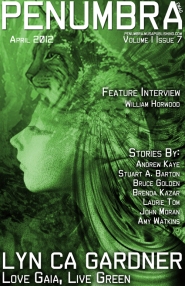Blog Archives
Fiction or non-fiction?
I’m always on a quest to get to know my readers better, so today I’d like to hear from you:
Do you read primarily fiction or non-fiction? Which do you prefer reading? Which do you prefer to write?
Answer in the comments below and feel free to ask me a question of your own.
Balancing Fiction and Non-Fiction
While I’ve been blogging for years, over the last year or so I’ve become more focused on non-fiction than ever before. This is not because I’ve found some new passion for it. It’s because it’s easier to get paid for non-fiction than it is to get paid for fiction, and I very much want to make a living. So I’ve shifted my focus to include more non-fiction. And I’ve actually gotten paid for a few articles, inspiring me to write more–after all, it’s not like I’m getting paid for my short stories yet.
But while non-fiction is an easier way to make a living off what I love doing–writing–it’s important to me that I keep this work balanced with my fiction, the stuff I’m truly passionate about. I might not be getting paid for it now, but I’m confident that someday I will, as long as I keep working at it. I also know that if I let my fiction fall by the wayside, it won’t be long before I’m depressed.
So how do I balance my non-fiction work with my fiction work? I always have a couple projects of both kinds going on, and I try to work on one of each every day. Other days I’ll decide to focus purely on one or the other. Many days I’ll do some non-fiction work in a notebook at school or during my commute home, and then focus on the fiction when I get home. How I do it from day to day varies, but I try to make sure that every week my accomplishments are on an even keel in both fiction and non-fiction.
This year I’ve really struggled with this balance as I try to bring non-fiction into focus, but my list of goals for next year already has a good balance of fiction and non-fiction. Finding the right balance is a process and I’m sure I’ll get better at it year after year. Over the last couple years I’ve figured out how much I can reasonably expect myself to do in one year–now I just have to find a way to balance my fiction work with my non-fiction work. While it’s kind of terrifying because I’m about to finish school and try to make it in the working world, it’s also wonderful. I’ve come a long way in the last couple of years and I’m incredibly proud of myself.
If you’re trying to balance non-fiction work with fiction work, take a good hard look at the lists of goals you’ve created for the last few months. Go through all your to-do lists and mark each item as fiction or non-fiction work. That will give you an idea of what you’ve accomplished in both fiction and non-fiction this year and allow you to see where the imbalances might be. Once you’re aware of this, it will be easier to set goals for next year that allow you to balance the two.
Friday’s post will be all about goal setting and creating that balance for the year ahead, so stay tuned.
Markets for Non-fiction
In keeping with my goal of building a writing income, I’ve spent much of the last week researching markets which publish articles on the topics I’ve decided to focus on: mental health, travel and entrepreunership. These are all topics I can write about without much research. I have struggled with mental illness since I was eleven, I’m creating my own freelance business right now, and I can write about great destinations in my city while fine-tuning my article writing skills for when I can afford to actually travel.
I’ve decided to share some of the markets I’ve come across in my research with you. I hope sharing them will help you build your own writing income.
Today’s markets are all very different from one another, but they all accept travel articles of varying length:
In the Fray is a magazine that seeks to promote understanding between people, encouraging tolerance, and defying categorization. They accept News writing, Commentary–including personal essays and travel writing–and Cultural Criticism, which includes essays and reviews. Being a small publication, they don’t pay a lot, and pay is different for each category. Commentary, the category travel writing’s in, will pay you $25-75 depending on length and quality. Articles should be 1, 000–4, 000 words long.
Up! is a magazine run by Westjet, aiming to enrich travel experiences with a focus on Westjet destinations in North America and the Caribbean. There are several sections including features, Eat+Drink, and you can even submit for the website/blog. They DO NOT TAKE UNSOLICITED SUBMISSIONS. Instead they ask you query, for time-specific stories between six months and a year in advance due to long lead times. Pay rates aren’t mentioned specifically, but my understanding is the magazines connected to various airlines–several have them–pay quite well and are worth the time.
Journeywoman is a travel magazine designed just for women. They accept articles covering women’s travelling concerns. Length is up to 900 words, with sidebars containing additional information outside the 900-word article. Payment is a $35.00 honorarium and eligibility for the Journeywoman writing contest, which has a prize of $100. There are several categories to submit to and they prefer stories which contain actual travel tips rather than just telling a story.
Don’t forget to read the guidelines thoroughly and check out a couple of the available online articles for each before you submit/query these markets. Knowing your market and understanding what they’re looking for is the best way to create something they’ll want to publish.
Have you submitted any non-fiction before? Did you meet with success?
Remembering to Write for Yourself
Many of us dream of writing for a living. Some of us have gotten paid for our work before, some of us haven’t. Some of us write during our day jobs. Others are lucky enough to have writing as their day job.
Right now, I’m sitting somewhere in the middle. I spend a lot of time working on assignments for other people: school, Penumbra and a couple things in the works that I don’t really want to talk about yet. Each of these assignments carves hours at a time out of my schedule. For the last couple of weeks, I’ve also spent hours of each day looking for writing jobs and examining markets.
A few days ago, I got an email from the lovely folks over at WriYe saying that they missed me and updating me on what’s going on there. I realized with some guilt that I’d neglected the site since late last year and went over there to pop my head in. After checking a few threads and making my guilty online confession and a list of my goals for the year, I stumbled upon a site called 750 words.
The idea behind 750words.com is that everyone should write three pages, or 750 words, a day to clear their heads. Originally intended to be a journalling tool, the website has a simple text editor where you can write, distraction free. The word counter sits in the bottom right hand corner, and when you hit 750 words, the counter turns from red to green. If you manage to write 750 words on this website several days in a row, you can get all kinds of badges which I’m sure will only increase with time.
This tool is great for any writer, especially the one who finds themselves spending all their time working on writing for other people. Your 750 words can be a journal entry, a character exercise, a synopsis for your novel, or anything else you want it to be. I’ve decided that only my most personal writing–my own sparse journalling mixed with character journals and probably a few exercises in flash fiction–is to be done on the 750 Words website. Since I’ve also set it up so that the website will email me reminders every day, I’ve put myself in an ideal position to write for myself every day.
Money and fame can often cloud our heads. We might spend seventy hours a week on a project that is earning us lots of money and forget to write for ourselves. Forgetting to write for ourselves can only lead to dissatisfaction with life and failure to meet the goals we set for ourselves. It’s important to remind ourselves every day that we got into this because we love to write, and that our long term goals of being novelists are just as important as the short-term goal of paying the bills.
Tonight, I’m going to use 750words.com to write a synopsis for my paranormal romance/fantasy story, tentatively named Birth of a Vampire. I’m planning to shop Birth of a Vampire around to the ebook publishers because of its awkward length at a little bit over 10, 000 words. I’ve been sitting on a two-paragraph rough draft of a synopsis for three weeks and it’s time to cut the crap. I need to make sure I honour my fiction as much as my non-fiction, even though non-fiction is more likely to pay the bills in the near future.
Always remember to write for yourself. Write because you love writing. Paying the bills, important as it might be, needs to be balanced with doing what you love.
Do you ever forget to write for yourself?



